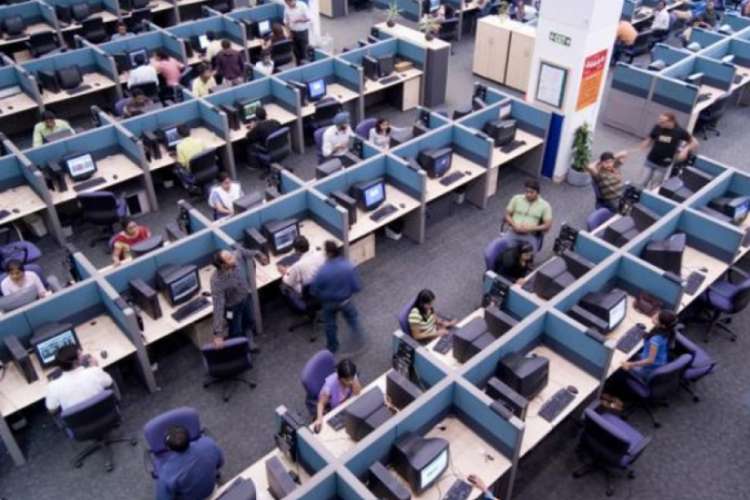
IT deals amid trade war: Amid renewed trade tensions triggered by US President Donald Trump’s reciprocal tariffs, India’s top six IT services companies are staring at a crisis. IT contracts worth $20 billion are up for renewal in 2025, but with fresh US tariffs in play and global macroeconomic uncertainties mounting, the future of these deals is anything but certain. Among the companies waiting for renewals in the wings is Nasdaq-listed Cognizant Technology, which, like its peers, faces a precarious environment for deal renewals.
Many of these contracts, signed during or shortly after the pandemic, spanned three to five years and are now expiring. They cut across key verticals including banking, financial services and insurance (BFSI), retail, consumer packaged goods, and manufacturing. According to CRISIL Ratings, the BFSI vertical alone contributes nearly 30% to the Indian IT sector’s revenues, followed by retail (15%), manufacturing (10%), and healthcare (10%).
READ | Tariff wars: Market turmoil, not strategy, drove Trump’s retreat
CRISIL forecasts a modest revenue growth of just 6–8% for FY2026, marking the third consecutive year of mid-single-digit expansion—signalling a prolonged slowdown for the sector.
Tough negotiations likely for IT deals
Automatic renewals are unlikely, and clients are expected to float competitive tenders to renegotiate terms, especially in an environment where cost efficiency is paramount. Some of the marquee contracts up for renewal include Tata Consultancy Services’ (TCS) deals with Star Alliance and Nielsen; Infosys’ engagements with GE Appliances and Daimler; HCLTech’scontract with UK-based insurer Chesnara; Wipro’s work with German utility E.ON and Brazil’s Petrobras; and Tech Mahindra’s project with Circle Health.

The US remains the primary market, accounting for 57% of the $193 billion revenue generated by Indian IT firms in FY24. But spending cuts driven by inflation and macro headwinds are already affecting the pipeline. Q4 FY25 is expected to reflect a sequential revenue dip due to seasonal weakness, fewer billing days, and muted demand, according to Kotak Institutional Equities.
Collateral damage of Trump’s tariff war
Trump’s broad-based tariff offensive doesn’t directly target IT services, but the knock-on effects are significant. The tariffs have sparked economic uncertainty in the US, dampening business sentiment and tightening client budgets—factors that weigh heavily on technology spending.
The Indian IT sector, heavily reliant on US business, finds itself indirectly affected. A slowdown in the world’s largest economy could hurt deal volumes and shrink deal sizes. Indian IT services exports to the US make up more than half of India’s total services exports.
The impact is already visible on Dalal Street. IT stocks have seen a broad-based selloff over the past week, with companies having high US exposure bearing the brunt. According to data from Geojit Financial Services, Mphasis earns 82% of its revenue from the US, Persistent Systems 81%, LTIMindtree75%, and HCLTech 65%.
AI reshapes the rules of engagement
In addition to geopolitical headwinds, the sector is grappling with rapid technological shifts. When many of these deals were signed, artificial intelligence (AI) was still on the fringes. Today, it is front and center of enterprise transformation strategies. Clients now expect more value from their service providers, with cost reductions and AI integration becoming key priorities.
AI and generative AI (GenAI) are poised to play a critical role in upcoming deal renewals. Indian IT firms are responding by embedding AI into their service offerings to stay relevant. For instance, Infosys is seeking to expand its $3 billion deal with German automaker Daimler by integrating AI components—hoping this will extend the partnership beyond 2028 and ensure stable revenue streams.
Turning headwinds into opportunity
Despite the challenges, there are glimmers of hope. The shift toward cost optimisation among global enterprises may spur demand for leaner, AI-enabled IT services—potentially opening up new growth avenues for Indian players. But to seize these opportunities, companies will need to reinvest savings into transformative AI capabilities and explore new verticals and geographies.
Bernstein, a leading private wealth management firm, believes India can weather the tariff storm, provided the sector continues to innovate and adapt. The broader solution may lie in policy too. India is currently in talks for a free trade agreement (FTA) with the US—a development that could provide much-needed relief not just for IT, but for other sectors facing tariff-related challenges.
Beyond the IT domain, India must use this moment to push through long-delayed reforms: cutting tariffs, accelerating trade deals, liberalising foreign direct investment (FDI), and letting the rupee be more market-driven.
As the geopolitical and technological landscape continues to evolve, India’s IT giants must pivot swiftly. The next wave of growth will depend not just on legacy capabilities, but on agility, innovation, and strategic foresight.
